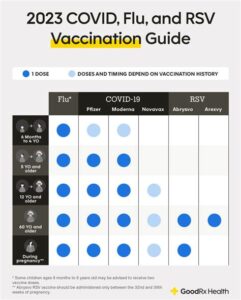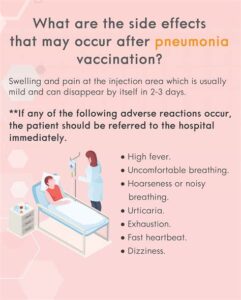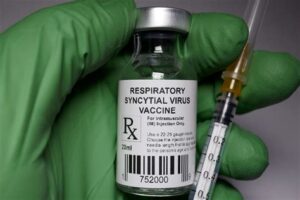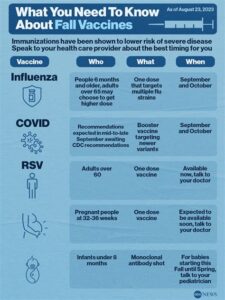Explore mRNA technology, its vaccine mechanism, efficacy, side effects, and future potential in immunization. Stay informed about this groundbreaking advancement in healthcare.In recent years, mRNA technology has revolutionized the field of vaccinology, particularly highlighted by its role in combating COVID-19. One of the most exciting developments is the emergence of RSV (Respiratory Syncytial Virus) vaccines utilizing this innovative approach. As we delve into this topic, we’ll explore the fundamental principles behind mRNA technology, shedding light on how these vaccines work and their effectiveness. Additionally, we’ll examine potential side effects and what they mean for future vaccine candidates. With RSV posing significant health risks, especially to young children and the elderly, understanding the implications of mRNA vaccines is more crucial than ever. Join us as we navigate the science, efficacy, and future prospects of mRNA technology in the fight against RSV.
Understanding mRNA technology
mRNA technology, or messenger RNA technology, represents a revolutionary approach in the field of vaccines and therapeutics. Unlike traditional vaccines that often use killed or weakened virus particles, mRNA vaccines work by instructing our cells to produce a protein that mimics a key part of the virus. This protein triggers an immune response without ever causing the disease.
This technology relies on the natural process of protein synthesis within our cells. When the mRNA vaccine is introduced into the body, it enters cells and provides them with the genetic instructions to produce a harmless piece of the virus, specifically the spike protein. This spike protein is unique to the virus, and its presence allows the immune system to recognize and fight off the actual virus if the body is exposed in the future.
The use of mRNA in vaccines has gained significant attention during the COVID-19 pandemic. However, its potential goes beyond COVID-19 vaccines and holds promise for various infectious diseases and even cancer therapies. The rapid development of mRNA technology demonstrates its versatility and efficiency in responding to emergent health threats.
How does the mRNA vaccine work?
The mRNA vaccine technology revolutionizes how we approach vaccinations. Instead of using live or inactivated viruses, the mRNA vaccine uses a small piece of genetic material known as messenger RNA (mRNA) to instruct our cells to produce a harmless piece of the target virus, typically a protein found on its surface. This method has shown remarkable effectiveness in teaching the immune system to recognize and combat viruses, such as SARS-CoV-2, the virus responsible for COVID-19.
Once the mRNA is introduced into the body through vaccination, it enters the cells and is translated into the viral protein. This protein, often referred to as a spike protein, then triggers the immune response. The body recognizes this protein as foreign, mounts an immune response, and produces antibodies. These antibodies remain in the system and equip the immune system with the tools necessary to identify and fight off the actual virus in future encounters.
One of the advantages of mRNA technology is its ability to be rapidly developed. The flexibility of mRNA can accelerate vaccine production, allowing us to respond quickly to emerging infectious diseases. Furthermore, mRNA vaccines do not use live virus particles, which reduces the risk of vaccine-induced infection. As research continues, the potential applications of mRNA technology extend beyond infectious diseas
Efficacy of the mRNA vaccine
The efficacy of the mRNA vaccine has been a topic of significant research and discussion, especially highlighted by the global pandemic. Studies have demonstrated that these vaccines are not only effective in preventing severe illness but also in reducing hospitalization rates among various age groups.
According to recent clinical trials, the mRNA vaccines exhibited an impressive efficacy rate of approximately 94-95% in preventing symptomatic COVID-19 infection. This high level of efficacy showcases the potential of mRNA technology in vaccine development. Furthermore, when tested against variants, the vaccines have shown to provide substantial protection, albeit with slightly reduced efficacy against certain strains.
In addition to individual efficacy, public health experts emphasize the importance of vaccination in achieving herd immunity. As more individuals receive mRNA vaccinations, communities are better protected, which is crucial for controlling the spread of infectious diseases. To summarize, the mRNA vaccine has proven to be a game changer in the fight against viral infections, p
Side effects of the mRNA vaccine
The mRNA vaccines, such as those developed for COVID-19, have been groundbreaking in the fight against infectious diseases. However, like all medical interventions, they come with potential side effects. Understanding these side effects is crucial for individuals considering vaccination.
- Pain at the injection site
- Fatigue
- Headache
- Muscle pain
- Chills
- Fever
- Nausea
Most of these side effects are mild to moderate and typically resolve within a few days. Serious adverse reactions are rare, but they can occur.
| Serious Side Effects | Details |
|---|---|
| Anaphylaxis | A severe allergic reaction that requires immediate medical attention. |
| Myocarditis and Pericarditis | Inflammation of the heart or its surrounding tissues, more commonly reported in younger males. |
It’s important to note that the benefits of receiving an mRNA vaccine generally outweigh the risks of these side effects. Health authorities continue to monitor and investigate any reported incidents to ensure the safety and efficacy of the vaccine. Always consult with your healthcare provider for personalized advice regarding vaccination.
Future of mRNA technology in vaccines
The future of mRNA technology in vaccines holds vast potential for revolutionizing how we prevent and treat infectious diseases. mRNA vaccines have already shown their efficacy against diseases like COVID-19, and the scientific community is eager to explore their applications for a variety of other illnesses.
One of the most exciting prospects for mRNA technology is its adaptability. Unlike traditional vaccines that often rely on weakened or inactivated pathogens, mRNA vaccines can be designed and produced much more rapidly. This speed is crucial in responding to emerging infectious diseases or variants, making it an invaluable tool in global health.
As research continues, we can expect advancements in mRNA vaccine delivery systems, improvements in manufacturing processes, and a deeper understanding of how to effectively elicit long-lasting immune responses. This could pave the way for the development of vaccines targeting diseases such as influenza, Zika, and even cancer, creating a transformative impact on public health.
Potential Applications of mRNA Technology
| Disease | Status of Research |
|---|---|
| Influenza | Clinical Trials |
| Zika Virus | Preclinical Research |
| Cancer | Early Trials |
In conclusion, the future looks bright for mRNA technology as it ushers in a new era of vaccines capable of addressing a wide range of health threats. Continuous investment in research and collaboration across t
Frequently Asked Questions
What is the RSV vaccine and how does it work?
The RSV vaccine is designed to protect against respiratory syncytial virus (RSV), which can cause serious respiratory infections, especially in infants and the elderly. The vaccine uses specific viral proteins to stimulate an immune response.
Is the RSV vaccine developed using mRNA technology?
Yes, some RSV vaccine candidates are being developed using mRNA technology, which involves using messenger RNA to instruct cells to produce a protein that resembles a component of the virus, eliciting an immune response.
What are the benefits of using mRNA technology in vaccines?
mRNA technology allows for rapid development and production of vaccines. It can provoke strong immune responses and can be updated quickly if needed due to mutating viruses.
Are there any approved RSV vaccines that use mRNA?
As of now, there are ongoing clinical trials for mRNA-based RSV vaccines, but no mRNA RSV vaccines have been fully approved for public use yet. Many candidates are still in development.
What safety concerns are associated with mRNA vaccines?
Common safety concerns include mild side effects such as pain at the injection site, fatigue, and fever. Serious side effects are rare but can occur, similar to other types of vaccines.
Who is most at risk for severe RSV infections?
Infants, young children, and older adults, especially those with underlying health conditions, are at the highest risk for severe RSV infections that can lead to hospitalization.
How does the mRNA technology differ from traditional vaccine approaches?
Traditional vaccines often use weakened or inactivated viruses or pieces of the virus to provoke an immune response, whereas mRNA vaccines use genetic instructions to help the body create its own viral protein and build immunity.





